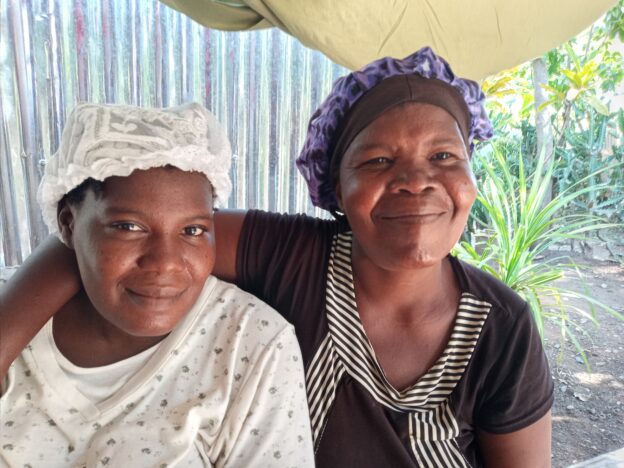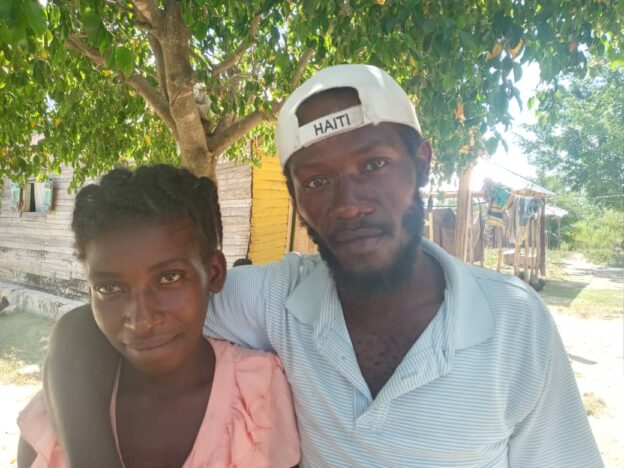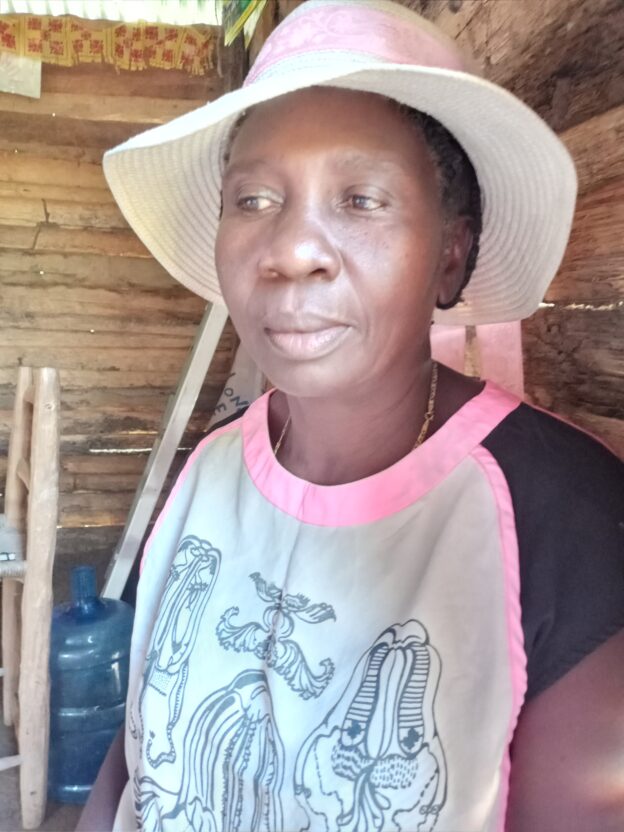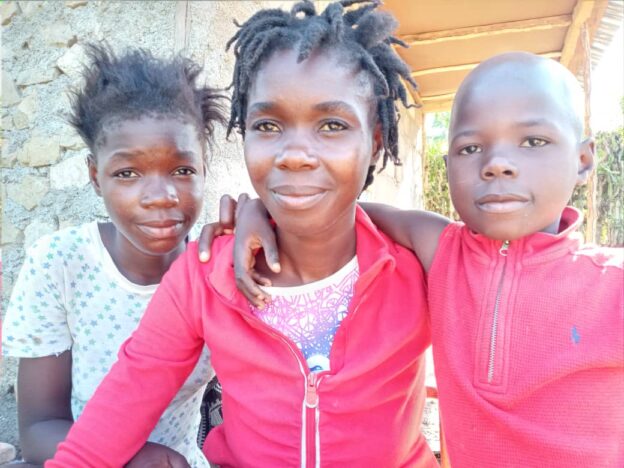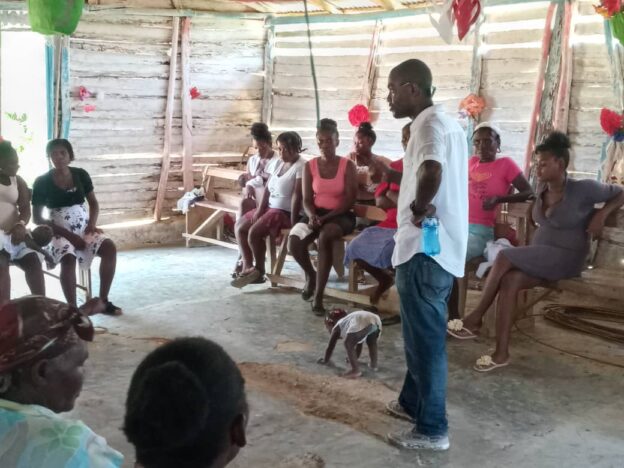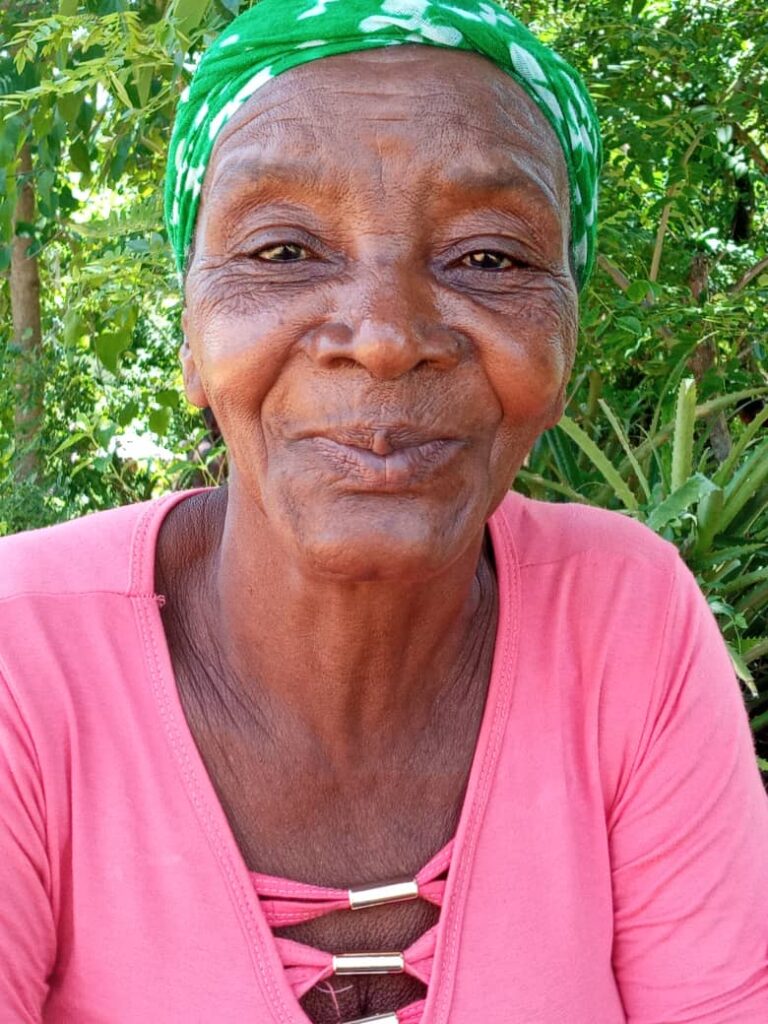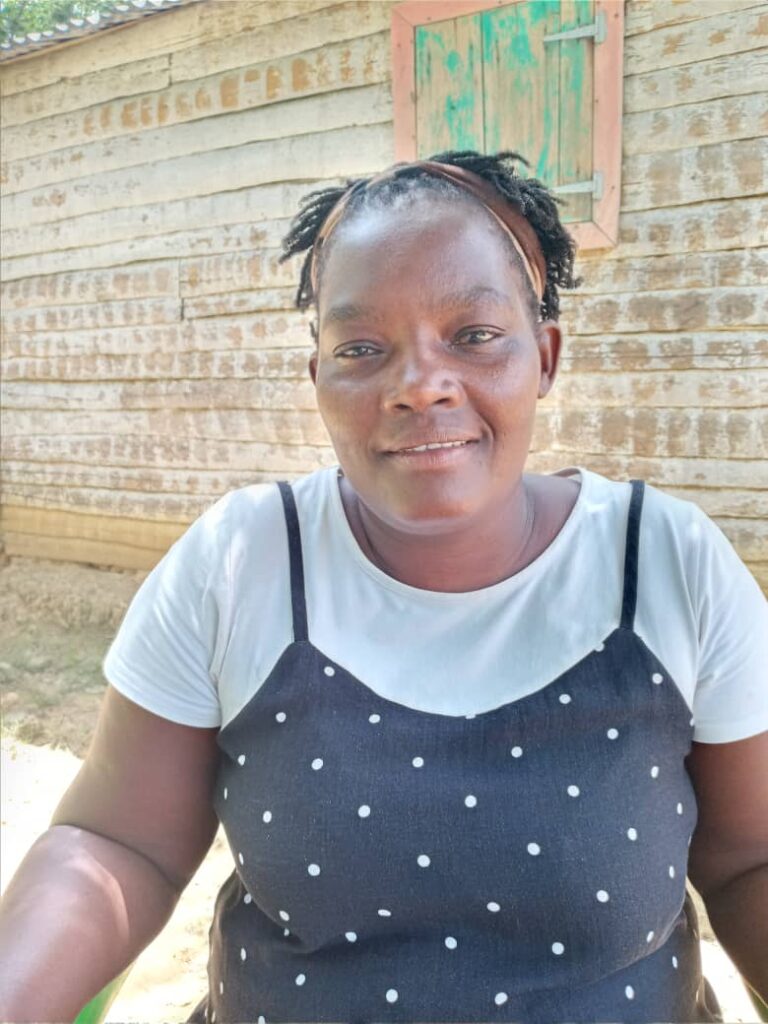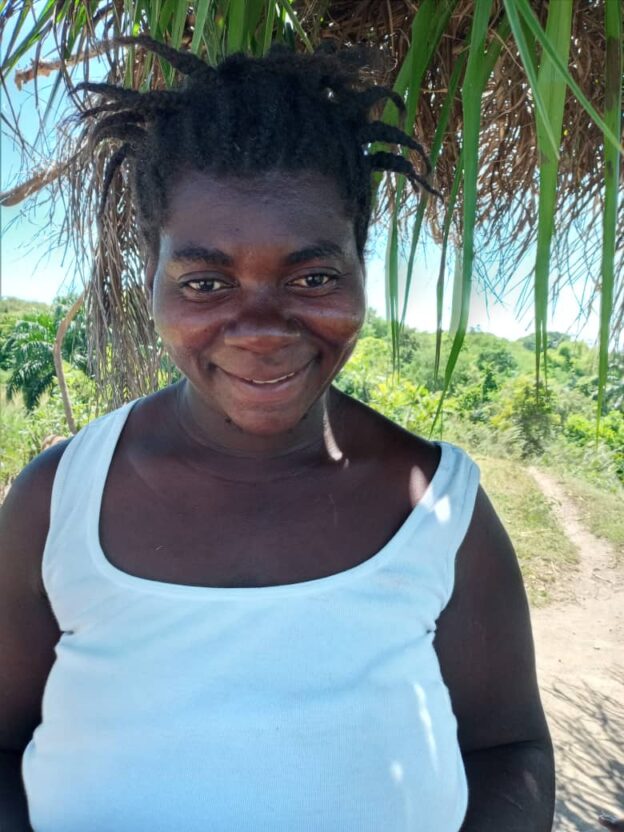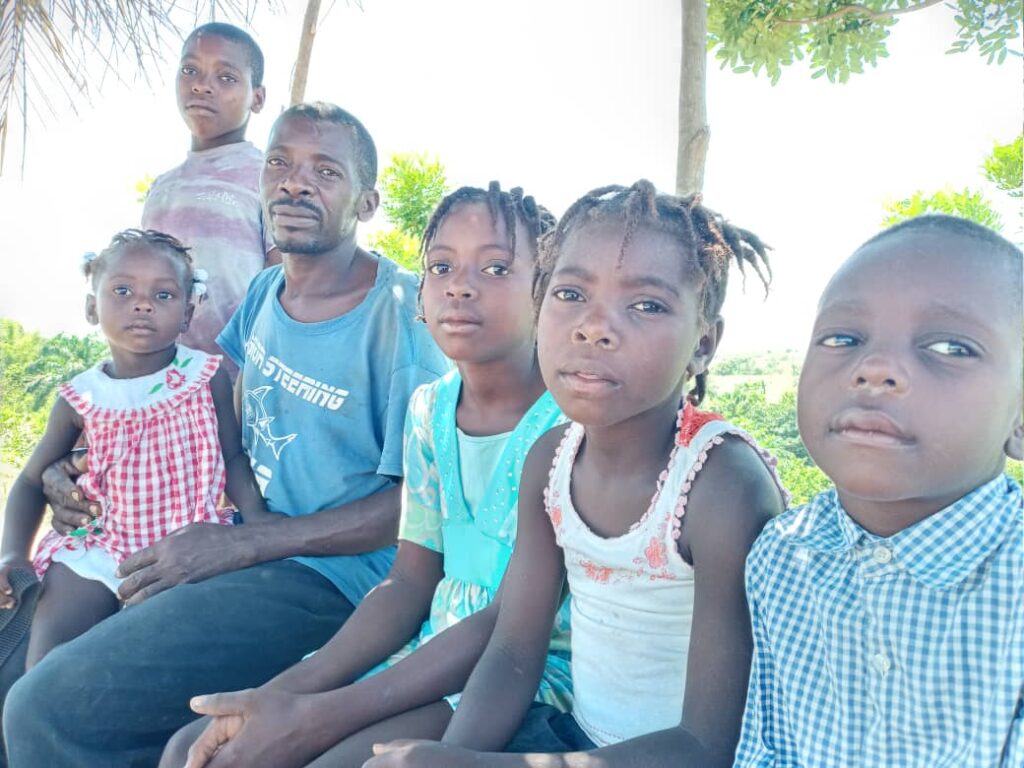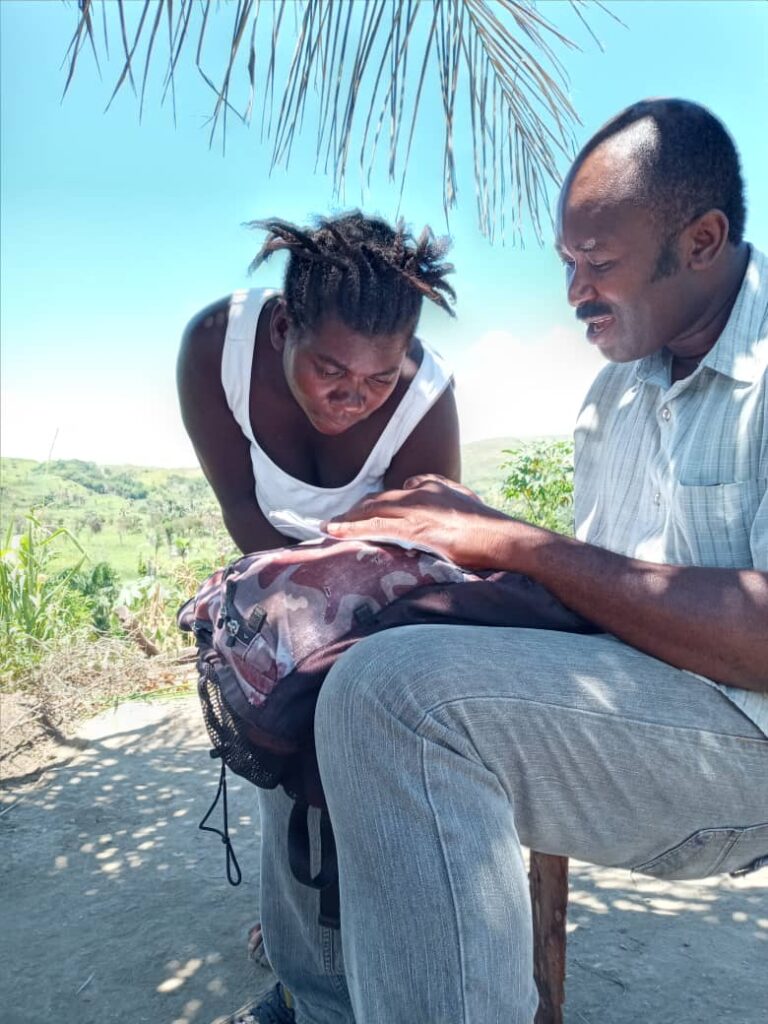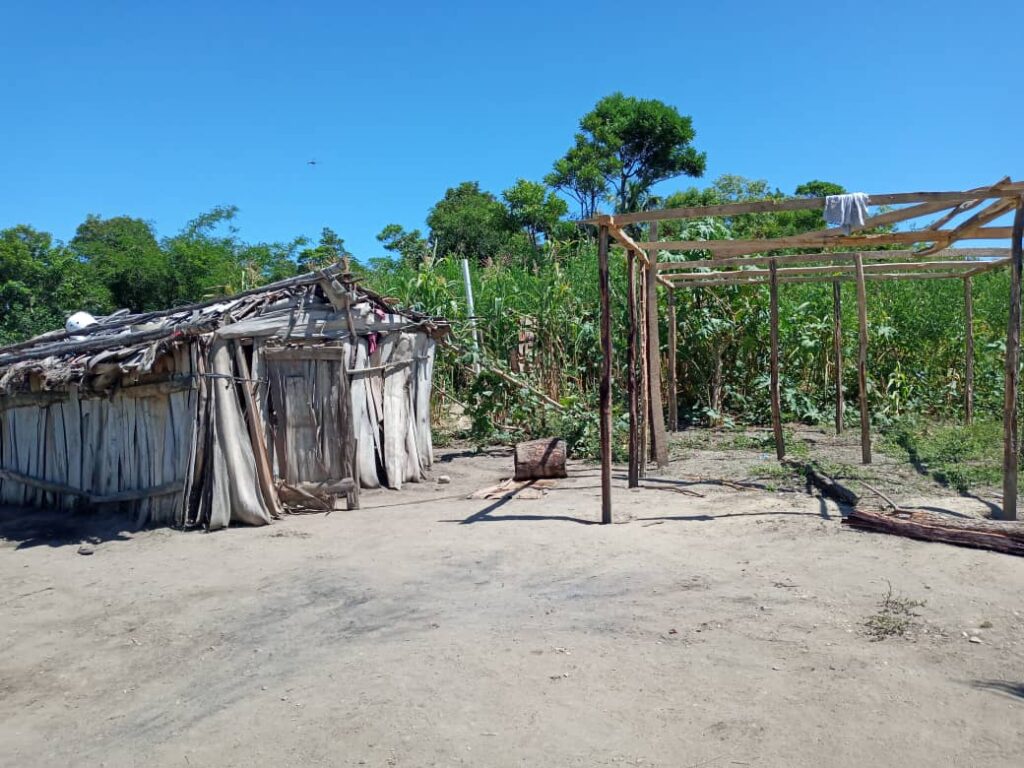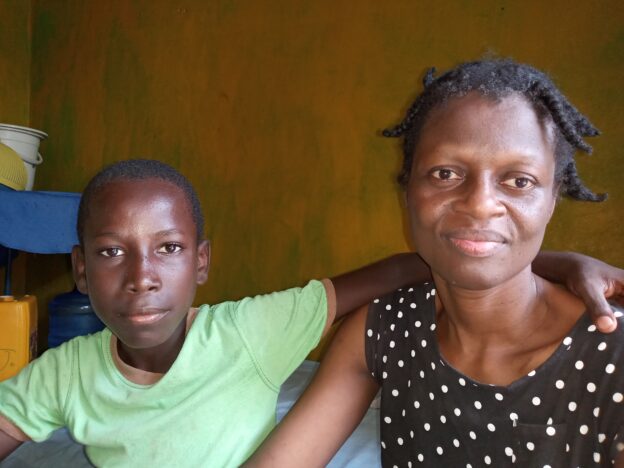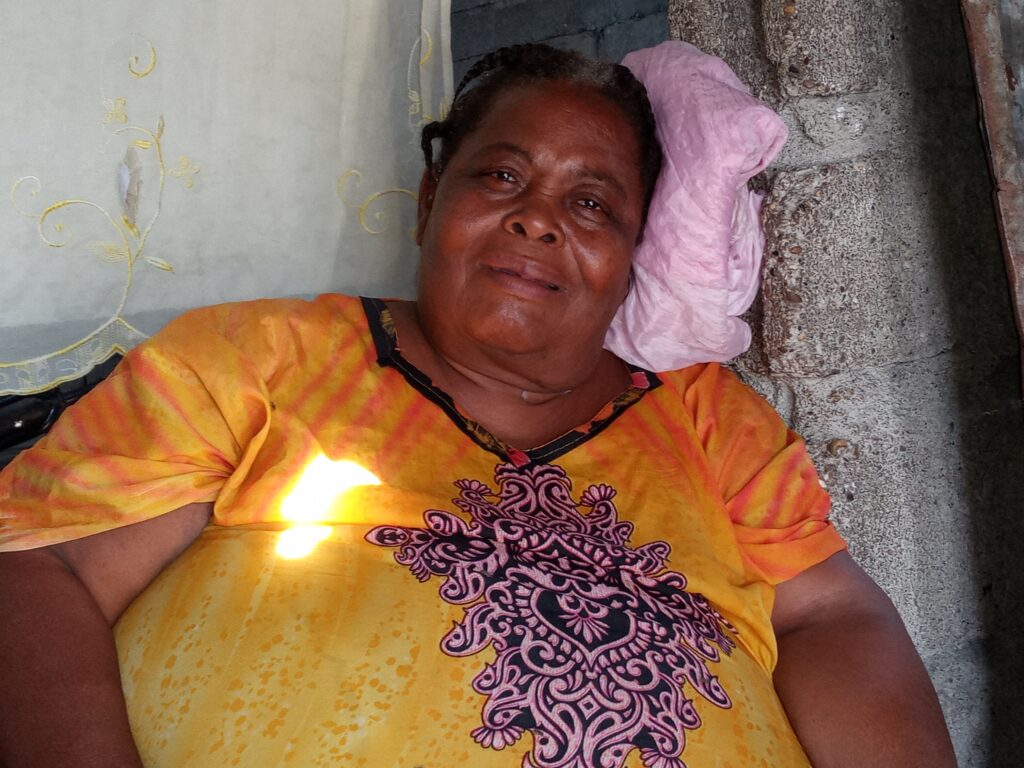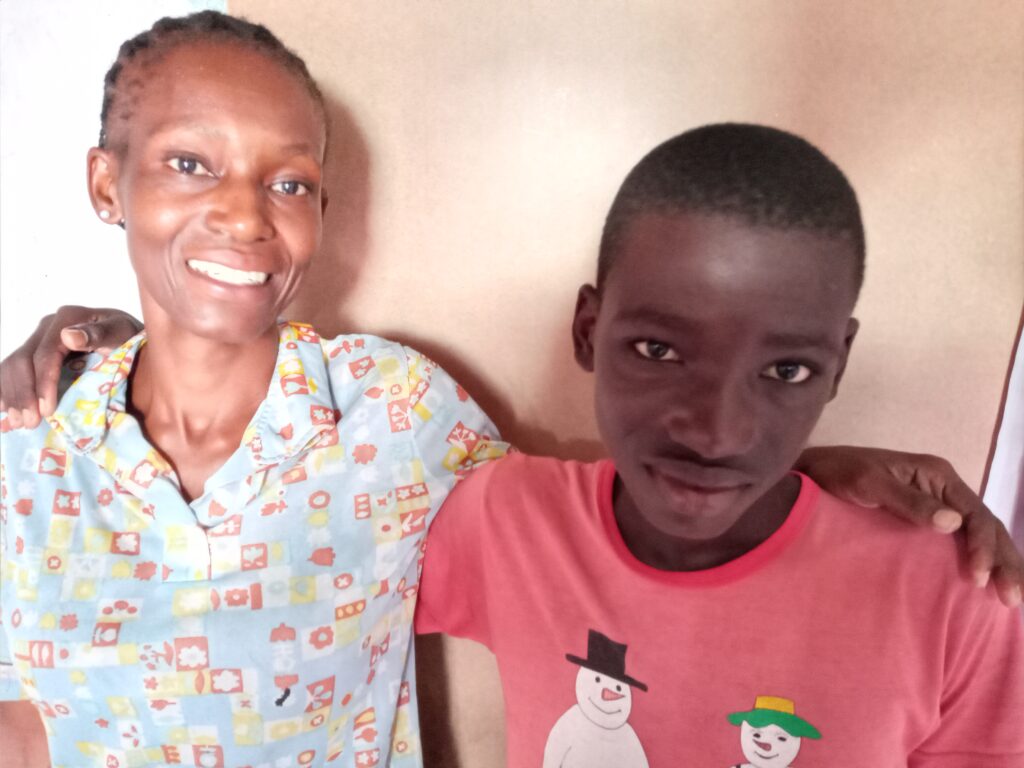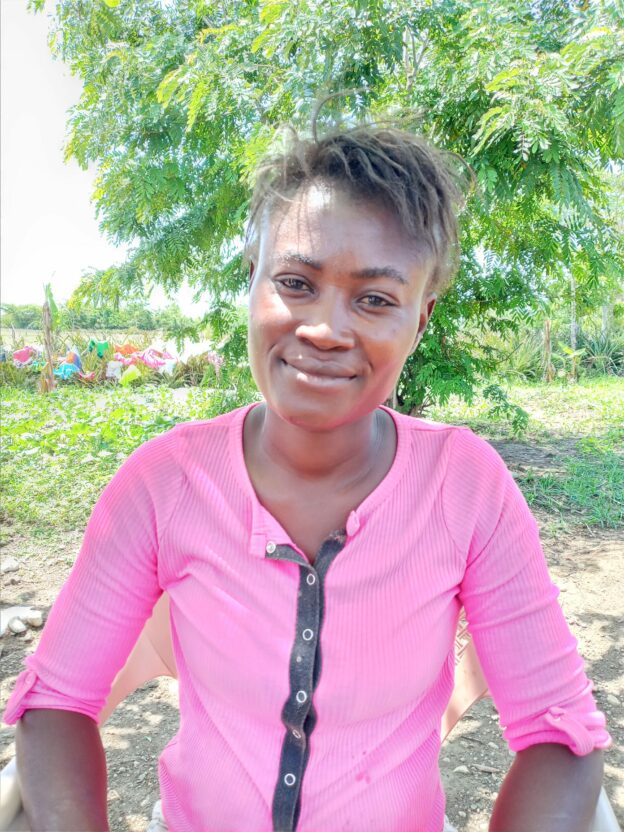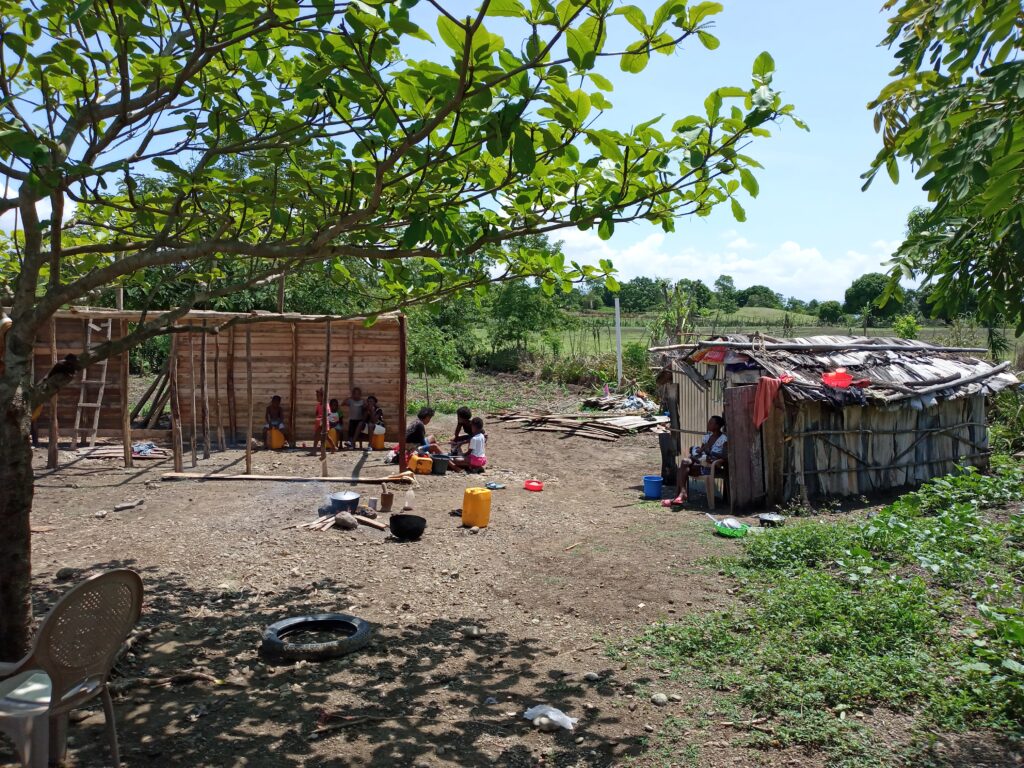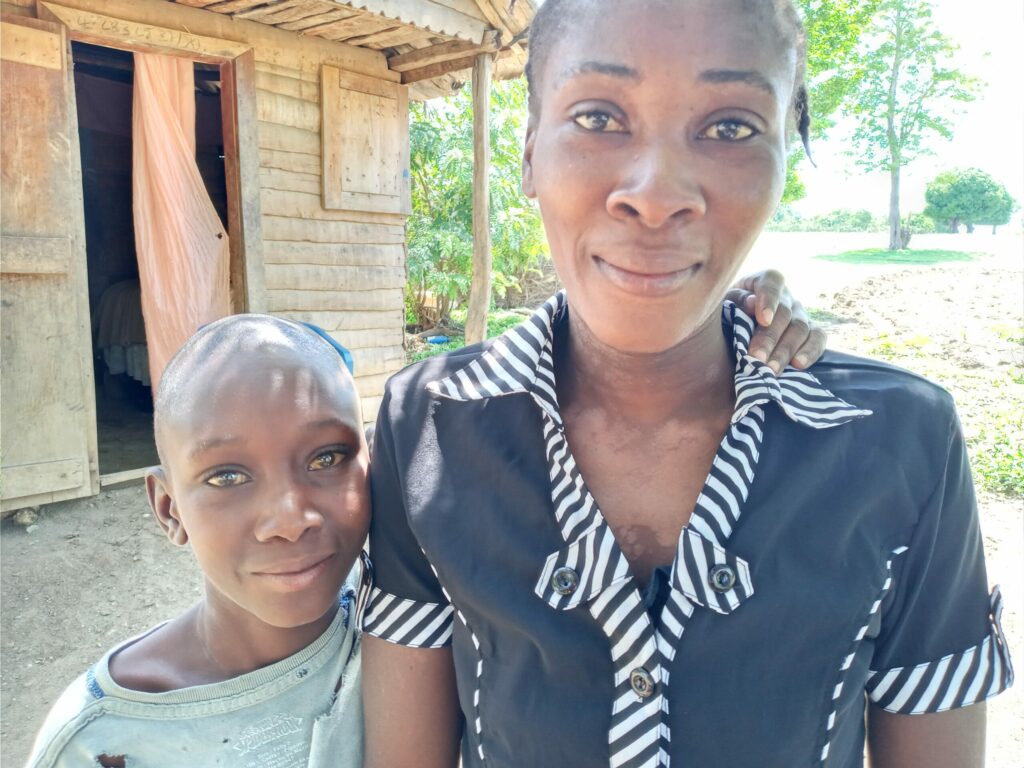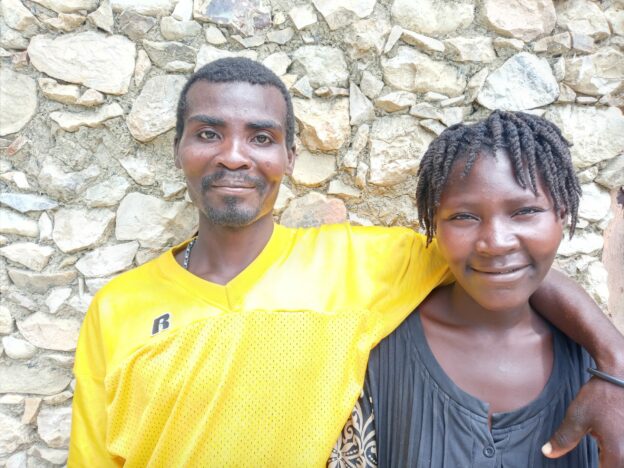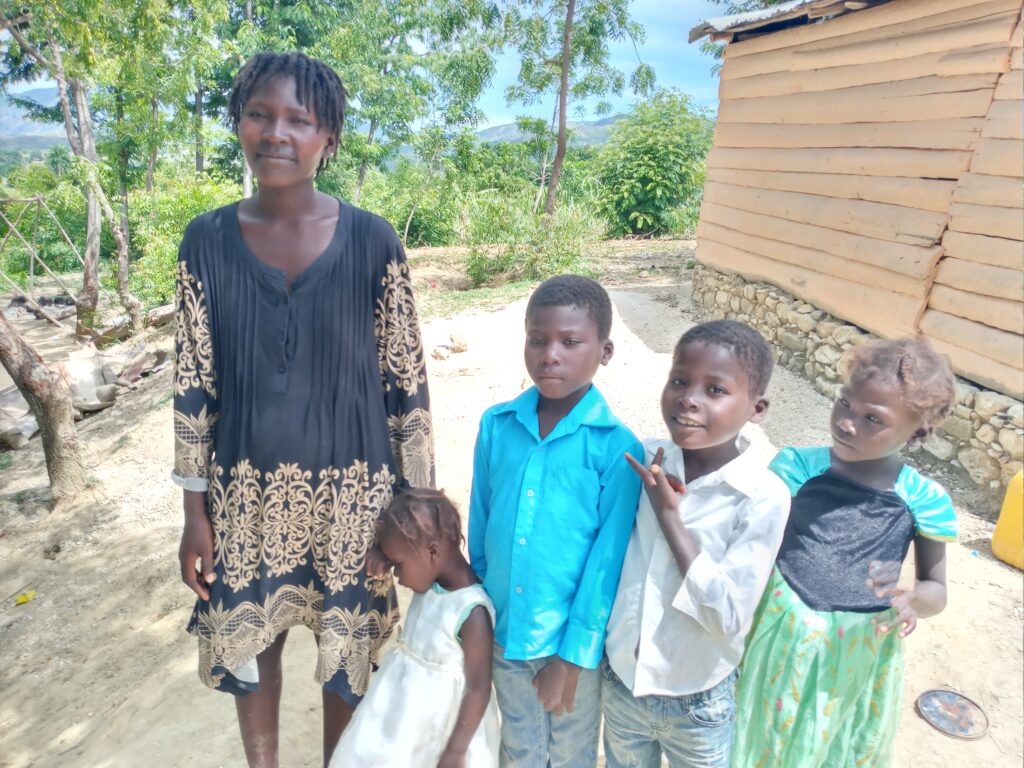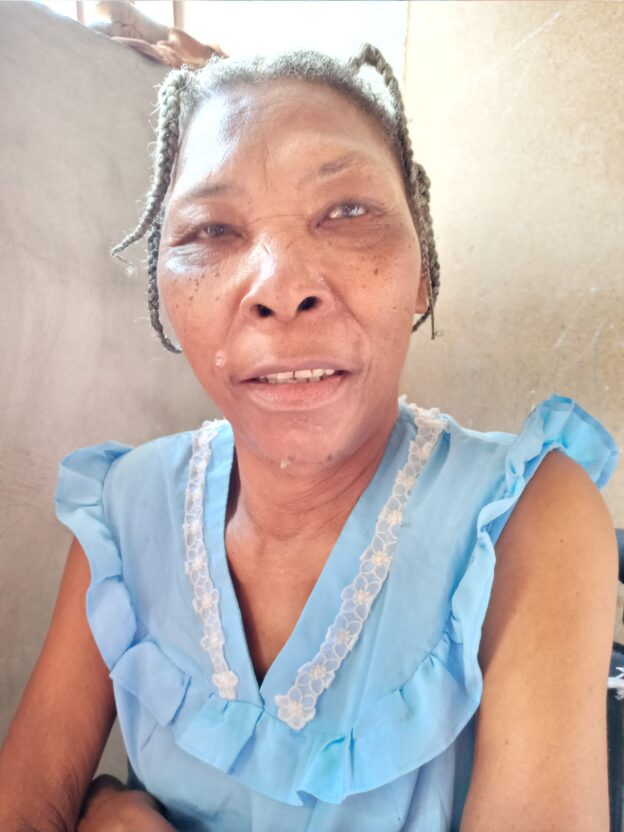Rose-Milove lives with her older brother and their widowed mother in the older woman’s house in Ti Jaden, a neighborhood just across the river to the north of Gwomòn. She and her mother are pictured above. She wasn’t among the 200 who were selected to be part of the CLM program a year-and-a-half ago. Her name did not even come up when the CLM team met with residents of the neighborhood to identify its families. It is not unusual for community members to forget about the kinds of people who qualify for CLM. Many live in isolation from their neighbors. Some go unmentioned because they are not the principal person in the house they live in.
But none of this was the case in the meeting nearest Rose-Milove’s home. She simply lives outside of the small area that the participants in the community meeting view as theirs. The team’s supervisor in Gwomòn, Gissaint César, met her when he went to the area to attend an event for young people. It’s the kind of thing he does to integrate himself and our team into the communities where we work. He came across her, seeing that she was struggling to get around with a walker. A CLM member from nearby had just abandoned the program, and it was only three months into the 18-month cycle. So Gissaint felt he could replace her and have enough time to bring an additional member all the way to graduation.
He sat and spoke with Rose-Milove, and felt she had a good chance of qualifying. He sent case managers to do the team’s standard preliminary selection survey. They recommended her for the program, and he was able to give her final approval.
The decision was easy enough to make. All three members of the family were managing small activities. But they were very small. Rose-Milove herself had a commerce, selling laundry detergent by the cupful. She had about 200 gourds invested, which was less than $2.50 at the time. She ran the business out of the home because she can’t get around well enough to do anything else. Her mother would buy her merchandise whenever she needed to restock. The older woman could do so conveniently during her frequent trips downtown to sell the snacks that make up her own business.
She chose goats and a sheep as her two enterprises. Her family agreed to help her care for them. Both seem devoted to Rose-Milove. The livestock hasn’t yet produced young, but all three animals are pregnant. And Rose-Milove has a goal for her livestock. She plans to sell offspring to buy a cow. “I want to increase my business by selling cold drinks, and selling a small cow would help me.”
In the meantime, the business is flourishing. Using savings from her weekly stipend, she began adding one product after another. First cooking oil, then coffee and sugar. The business now has the look of a rural Haitian Seven-Eleven.
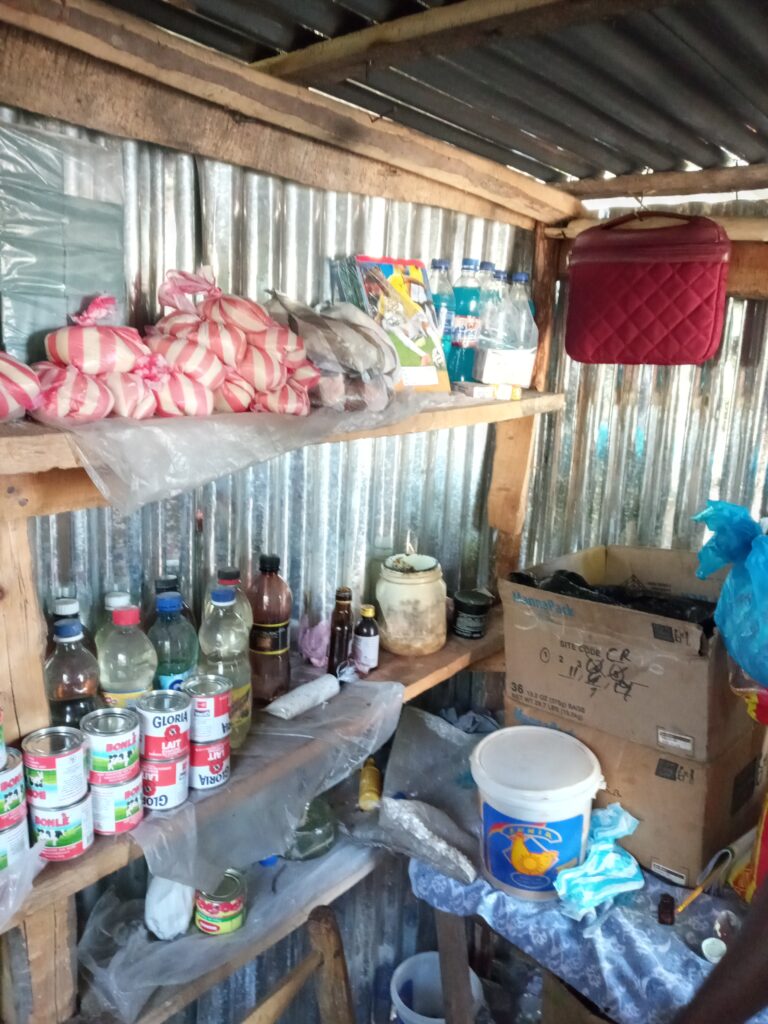
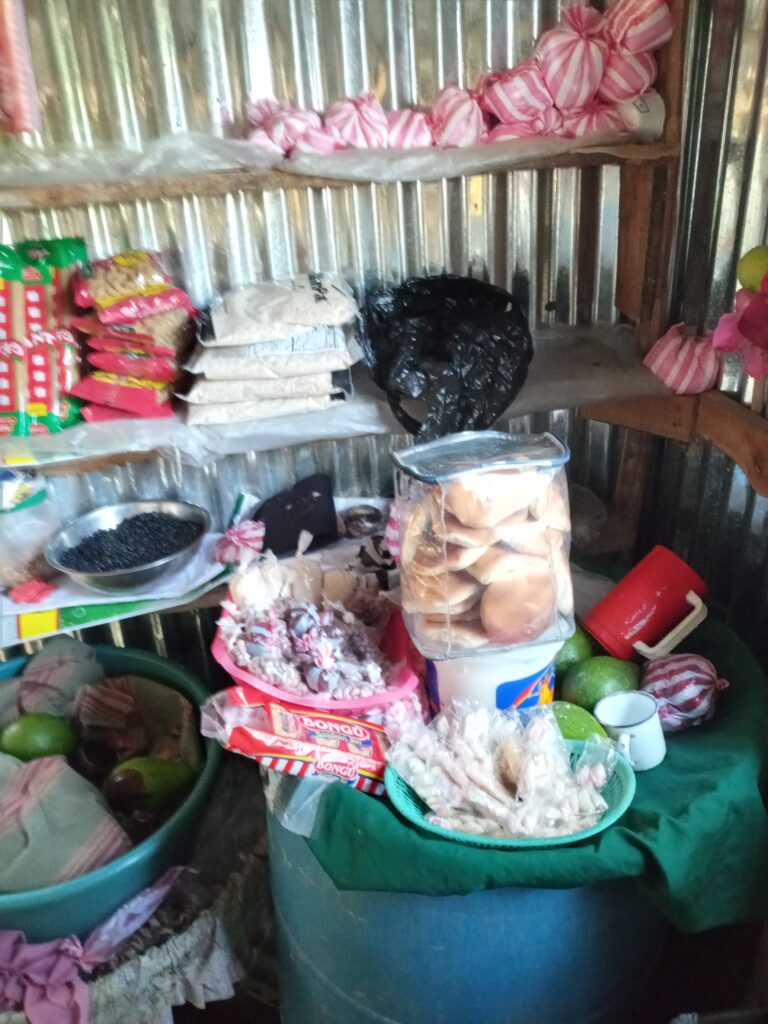
She sells groceries, kerosene, candles, matches, cleaning products, and various kinds of snacks. Her mother still does most of her business walking around Gwòman, but she also leaves merchandise in Rose-Milove’s shop. As does her brother, who makes and bottles cleaning liquid. A business that started with 200 gourds of laundry detergent now has 15,000-20,000 gourds of this, that, and everything.
As the business grew, she needed a small structure to sell out of. It became too much to arrange in a corner of the house. But she and her case manager, Figaro, worked out a plan. The program normally provides members with assistance repairing their home or building a new one. Rose-Milove’s home was in good condition. It belongs to her mother, and Rose-Milove would not consider moving. She needs her mother’s support. She hasn’t been able to walk comfortably in more than eight years, and on her worst days she cannot walk at all.
So she took the investment that the program would have made in a home and used it to build a small shop. The roofing material that CLM provides was enough for both roof and walls. She used savings from her stipend to install its shelving.
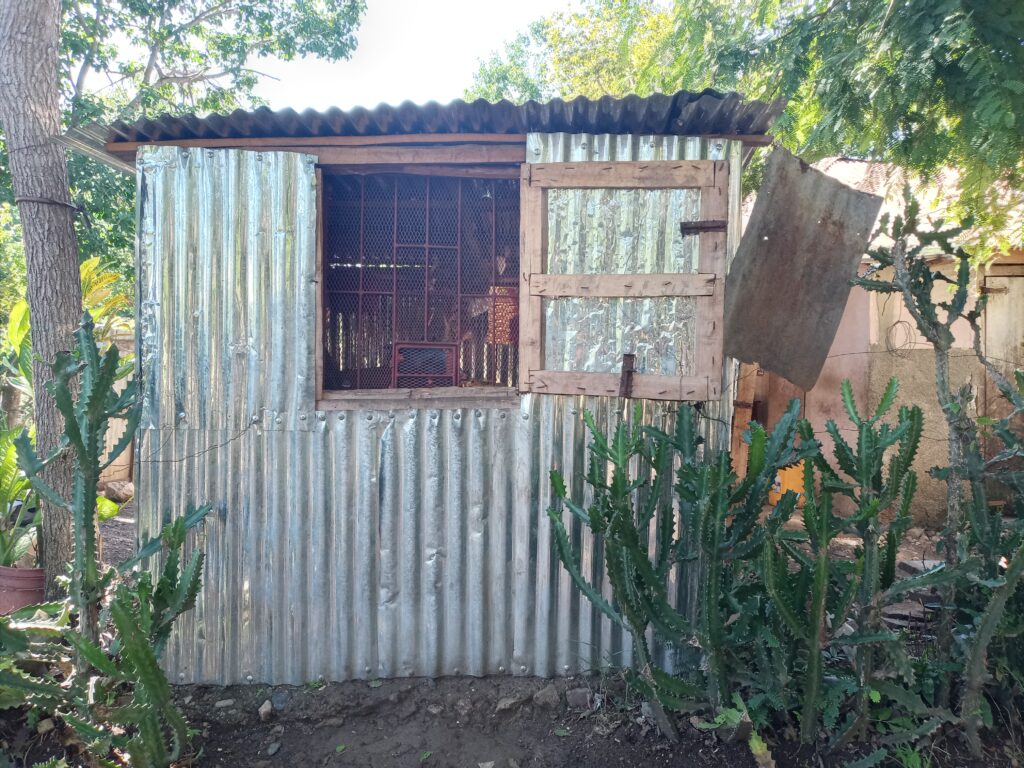
Although she joined the program late, Rose-Milove is well on her way towards graduation, which is scheduled for November. In fact, when she was evaluated at twelve months, she already qualified. Five months later, and ready for final graduation, she has made more progress still.
